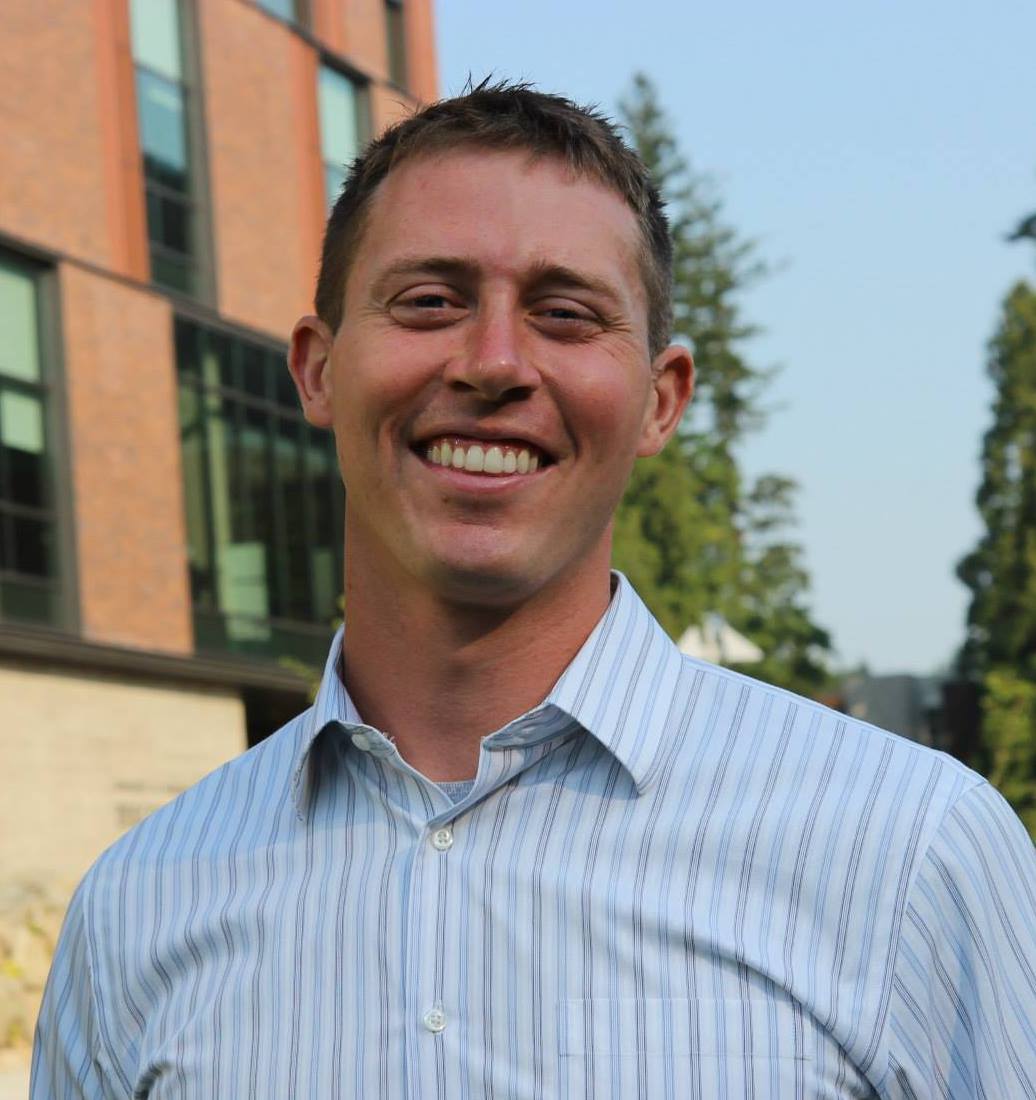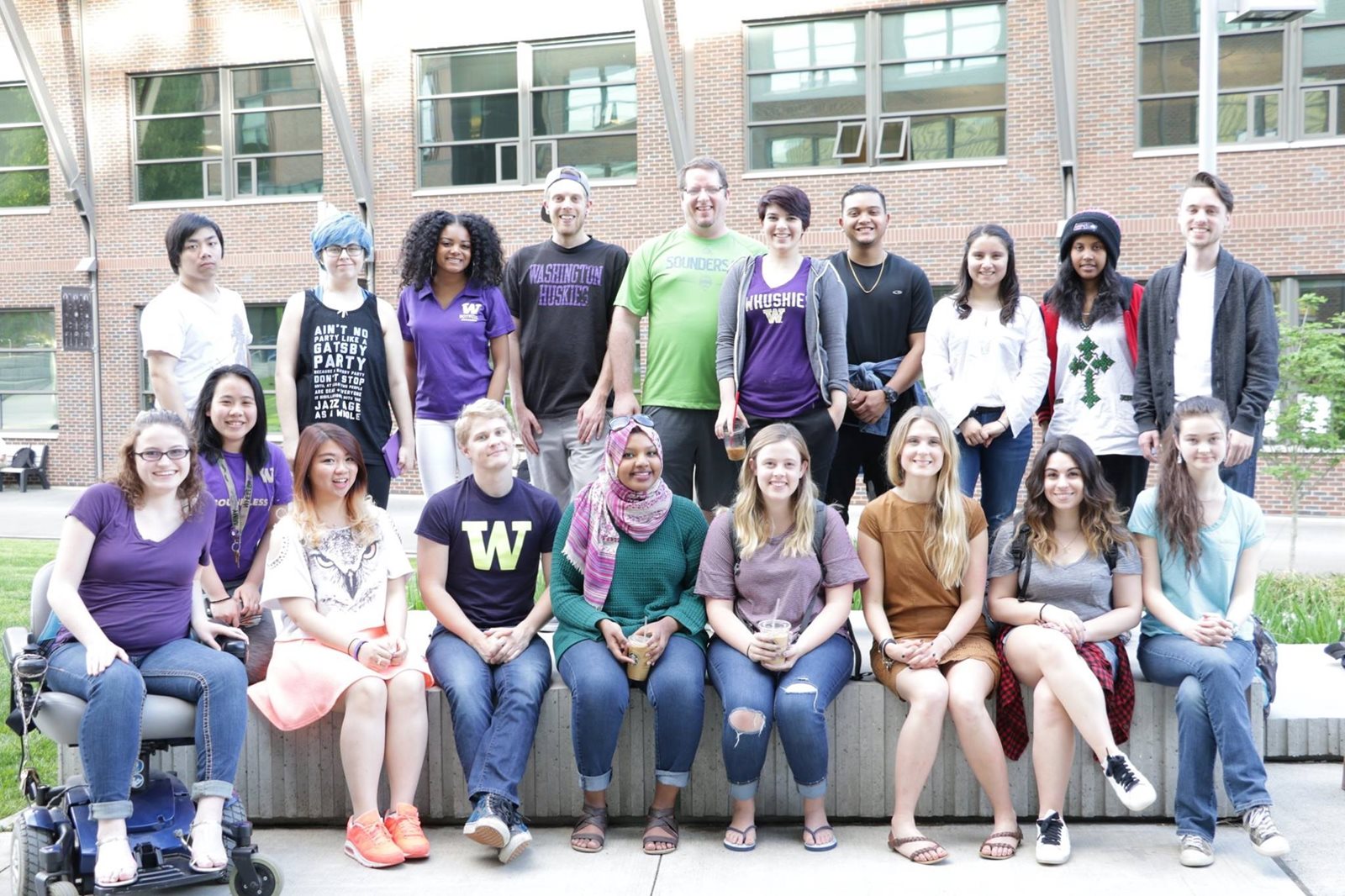
At UW Bothell, we are reinforcing our commitment to equity and inclusion by offering one-on-one mentoring to new students in seven identity groups.
When new first-year and transfer students register for their orientation this summer, they’ll be asked whether they’d welcome mentoring by a faculty or staff member or a student peer in these groups: LGBTQ, veterans, first-generation, interfaith, international, students with children, and students with disabilities.
The mentoring is a way to bring students into a closer relationship with the campus, says Dan Scheuler, right, assistant director of orientation in the division of student affairs.

“If students are feeling connected, welcomed, they’re more likely to stay at the University and graduate,” he says. “This is hopefully a way we can do our part to help students feel connected and supported by our diverse campus.”
The one-on-one mentoring is an expansion of the identity networks the University started in 2015 for incoming students who identified in three groups: first-generation, GLBTQ or veterans.
The networks are designed to provide a year long transition period for students, “so they feel welcome, so they feel included, so they feel UW Bothell is a good home for them. They know their identity is something they have in common with other students on campus,” Scheuler says.
Network leaders share information about clubs and organizations, community and campus resources, and hold monthly programs for the group. Adding the mentorship component gives additional support for students with unique transitional needs, says Scheuler who oversees the program.
Network leaders are paid student positions. The division is taking applications until Feb. 8. The one-on-one faculty, staff and peer mentors are volunteers. Scheuler is holding a workshop 12:30 p.m.-1:30 p.m. Feb. 8 in UW1-103 to answer any questions faculty and staff have about becoming one-on-one mentors.
Scheuler says he knows of no other university offering this kind of mentoring and community building beginning when a student makes contact with the University.

“We’re trying to catch those students before they even start here, before they even sign up for classes,” he says.
Photo: The orientation and transition student team. (courtesy photos)
“The mentorship piece will add another layer where they can engage with other folks on campus and start to develop some of those relationships. We think that’s going to help build community,“ Scheuler says.



